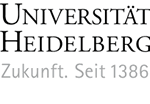Dr Sebastian Schuck
Applications accepted all year round
About the Project
The laboratory of Sebastian Schuck at the Center for Molecular Biology of Heidelberg University is looking for a PhD student to investigate micro-ER-phagy, a novel type of autophagy that selectively targets the Endoplasmic Reticulum (ER).
Cells use autophagy (literally: self-eating) for many purposes, including the generation of nutrients during starvation and the disposal of damaged or redundant organelles. A poorly understood type of autophagy is the selective autophagy of ER. In yeast, an accumulation of misfolded proteins in the ER causes massive ER expansion. Furthermore, it triggers the formation of large spherical, multilamellar ER membrane whorls. These whorls are subsequently destroyed through an autophagic process called micro-ER-phagy. In this way, cells may sacrifice parts of their ER to discard misfolded ER proteins and ensure that the organelle works properly even during stress. In addition, cells appear to use micro-ER-phagy to control ER size. Importantly, micro-ER-phagy does not require the known autophagy genes but involves novel molecular machinery.
We have recently conducted a screen in yeast that has uncovered the first genes required for micro-ER-phagy. We now use biochemistry, live cell fluorescence imaging and electron microscopy to elucidate the mechanism by which cells destroy selected parts of their ER. Furthermore, we will apply the information gleaned from yeast to define micro-ER-phagy in mammalian cells. We anticipate that micro-ER-phagy has important physiological roles in maintaining ER homeostasis and is relevant for diseases that impinge on ER function, such as cancer and diabetes.
If you are passionate about understanding life’s fascinating complexity at the molecular level, our young lab in a lively, international and collaborative research environment may be the right place for you. A strong background in biochemistry and molecular biology is important for this project. Also, you should be comfortable working in an English-speaking environment. If you are interested, please visit our website for more information (http://www.zmbh.uni-heidelberg.de/Schuck) and contact [Email Address Removed].
References
1. Schuck S. (2016). On keeping the right ER size. Nature Cell Biology, https://doi.org/10.1038/ncb3430
2. Schuck S, Gallagher CM, and Walter P. (2014) ER-phagy mediates selective degradation of endoplasmic reticulum independently of the core autophagy machinery. Journal of Cell Science, https://doi.org/10.1242/jcs.154716
3. Schuck S, Prinz WA, Thorn KS, Voss C, and Walter P. (2009). Membrane expansion alleviates endoplasmic reticulum stress independently of the unfolded protein response. Journal of Cell Biology, https://doi.org/10.1083/jcb.200907074

 Continue with Facebook
Continue with Facebook

